📍 Three years after Weak Hero’s premiere, an overlooked interview with Director Yoo from the show’s original release period woke me up and my followers—as is the fate of all stories with powerful narratives, the show had ended, but fans’ secondary creations continue to shine bright.
Fans are still debating whether Beom-seok was still alive in the Philippines, whether he might return to Seoul to seek forgiveness from Su-ho and Si-eun, and the ultimate question that keeps fans talking: would Su-ho ever forgive him?
⚠️ Disclaimer: This post represents my personal analysis as a fan, synthesising various interviews, discussions, and interpretations from the Weak Hero community. All views are my own fan perspective.
The Interview We All Overlooked
A subscriber desperately reached out, asking where they could find Director Yoo Soo-min’s interview—the one that revealed Beom-seok wasn’t dead but still alive, and why.
Most fans had missed this piece entirely.
What started as a simple “hey, did you know about this?” became the catalyst for diving deeper into our understanding of one of the series’ most polarising characters.
The interview contained this crucial quote from Director Yoo:
I actually didn’t think Beom-seok was running away by going abroad to study. It was a study abroad program he didn’t want to attend, but Su-ho was in a difficult situation, struggling to pay his hospital bills.
He could only resolve Su-ho’s medical expenses if he went himself. So I thought he went even though he didn’t want to, thinking of Su-ho.
I think Beom-seok probably regrets it and has learned a lot. Haha..
I noticed that many fans within the fandom had been interpreting the story under the assumption that Beom-seok had fled to the Philippines out of guilt and shame, possibly even dying there under pressure from his adoptive father.
This single paragraph might have brought relief to fans who still held affection for Beom-seok.
Nuance Matters: Beyond Subtitles
But what fascinated me wasn’t just the revelation itself.
As a local, I can fully absorb the characters’ Korean dialogue at face value, but I’ve always felt passionate about helping non-Korean-speaking fans optimise their Weak Hero viewing experience by understanding the cultural contexts they miss—the complex honorific systems, intricate grammar, and cultural implications when formal and informal speech are mixed.
A follower responded:
“I’m weirdly glad he’s alive. But also in the series (Eng subtitles at least) in ep 8, Aide Park tells Beom-seok to listen and obey if he doesn’t want Su-ho to be harmed :(“
This comment opened up an entire discussion about the cultural and linguistic subtexts that remain invisible in translation.
The exact nuance of what that aide said was far colder and calculated:
If you want Su-ho to keep extending his life depending on that oxygen machine, you’d better listen to the congressman (Beom-seok’s adoptive father), obey, and get ready to go to the Philippines.
The Korean original revealed something much more calculated—the aide wasn’t just threatening Su-ho’s safety, he was specifically weaponising Su-ho’s fragile grip on life, using the image of him clinging to an oxygen machine as psychological leverage.
Aide Park had figured out at a glance that Beom-seok held a deep attachment to Su-ho, and immediately used this leverage to ensure Beom-seok could no longer create risks that might mess up Congressman Oh’s career.
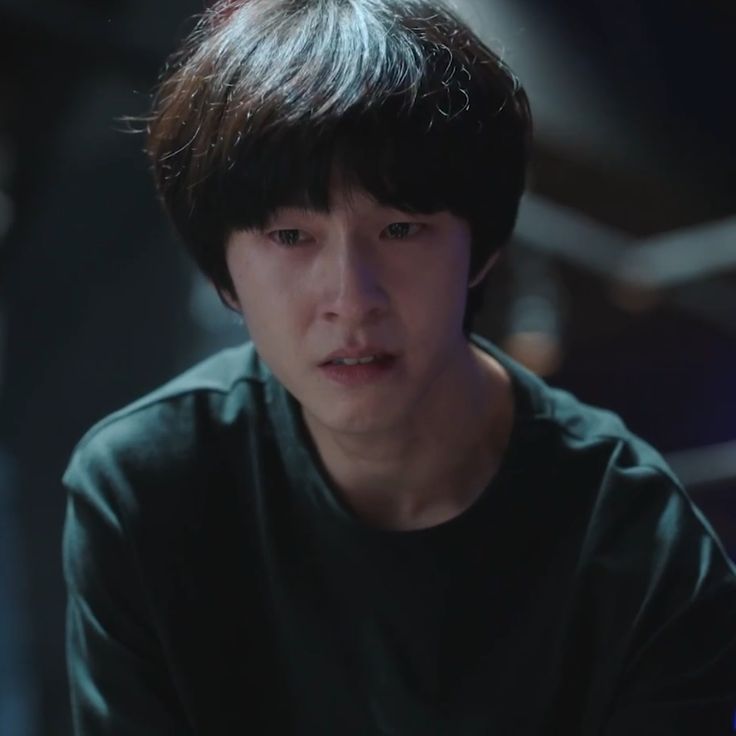
But here’s where it gets even more complex.
Korean has formal and informal speech patterns that completely disappear in English translation.
Aide Park switches between polite and casual speech when talking to Beom-seok. When he said “Su-ho is still alive,” he used formal speech—acknowledging Beom-seok’s status as the son of the congressman he serves.
But when he delivered the threat about the oxygen machine, he dropped into informal, slightly condescending language, which could reflect both his assertion of dominance and perhaps some familial affection for Beom-seok, whom he may have known since childhood.
In Korean, dropping into casual speech carries this ambivalent meaning—it can be a subtle but unmistakable way of asserting dominance over someone, or it can signal emotional closeness and familiarity rather than distant formality.
The Art of Saying Everything by Saying Nothing
Korean often drops the subject when the meaning is clear from context. When Beom-seok frantically asked, “What about Su-ho?” the aide answered simply “살아있어요, 아직” (is alive, still) without specifying who. But the subtext was devastating: (He’s barely hanging on, but) he is alive, still.
Three syllables in Korean.
Two words in English.
But in those dropped syllables lives an entire world of implication about Su-ho’s condition, about how precarious his survival was, about how easily that could change.
The aide had clearly figured out how much Beom-seok cared about Su-ho and immediately used Su-ho’s critical condition to psychologically control him.
This was both the cold bureaucratic following of orders and calculated emotional manipulation.
As I told a Twitter follower:
Maybe that aide felt sorry for Beom-seok deep down.
But he’s just a paid secretary, so he probably pushed down that pity.
But when that aide clearly read Beom-seok’s overreaction to Su-ho and immediately used it against him, I agree he’s just another adult who makes bleeding kids bleed more.
This dynamic between Aide Park and Beom-seok perfectly illustrates the 🔗 deeper psychological trauma that shapes these relationships throughout the series.
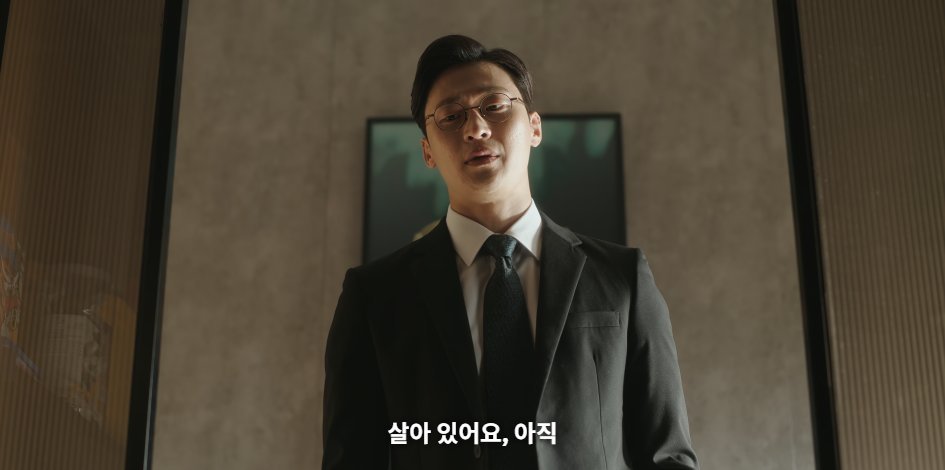
When Individual Stories Become Universal Truths
This conversation naturally reminded me of Director Han Jun-hee’s broader perspective on adult complicity in cycles of violence.
As a huge fan of Han Jun-hee, I’ve always been struck by how his previous works D.P. and Weak Hero operate in connected universes, though D.P. deals with a larger system.
D.P. tells the story of Ahn Jun-ho, a powerless individual fighting against the military system.
Weak Hero is about Yeon Si-eun, a powerless boy fighting against violence that stems from adults—sometimes carelessly perpetuated by them.
These characters represent 🔗 the real people among us who face similar struggles in their daily lives.
Both stories examine what Han Jun-hee described as adults who make children and young people on the boundary between adolescence and their early twenties, “bleed more” rather than protecting them.
In D.P., the military system tells individuals like Ahn Jun-ho, “What can someone like you possibly do? Don’t get ahead of yourself thinking you can change anything.”
In Weak Hero, Baek-jin (poorly imitating bad adults) says to Jun-tae: “What can a bastard like you possibly do?”
The through-line is unmistakable:
Both stories examine how systems and adults crush young people who dare to resist, who dare to think they can make a difference.
Yet despite this, these young people push themselves to their limits. Ahn Jun-ho faces down the military bureaucracy alone on a moving train, outnumbered but undaunted.
Si-eun, who seemed to live only for the singular “purpose” of getting into a prestigious university, goes ballistic—not caring if he ends up in juvenile detention tomorrow, not even worrying about such consequences—and seeks revenge for the violence that nearly killed his precious friend.
The source of that violence?
The selfish, indifferent, complacent adults represented by figures like “Congressman Oh” and “Aide Park”
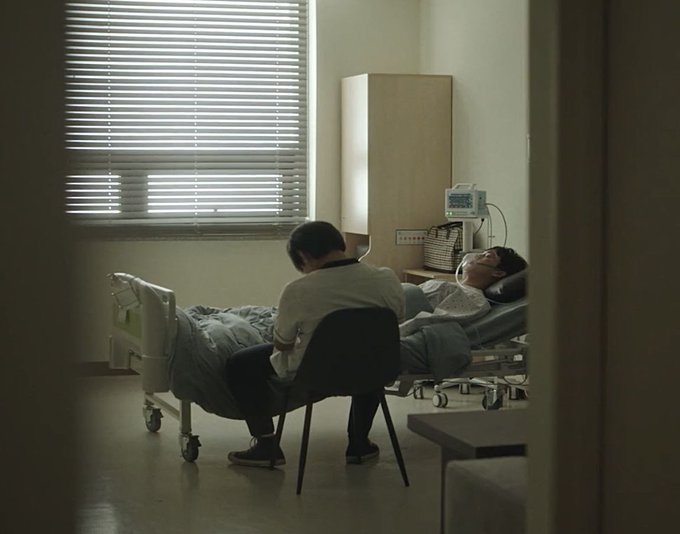
The Real Story Weak Hero Tells
I’ve come to see Weak Hero as a story about how children bear the bloody consequences of adult selfishness and indifference.
The parents who abandon their responsibilities, the school officials who look the other way, the politicians who prioritise their careers over their children’s wellbeing—all of them create the conditions where kids like Su-ho, Si-eun, and yes, even Beom-seok, end up fighting battles they should never have to fight.
Both Han Jun-hee and Yoo Soo-min understand something crucial that elevates their work: you can’t tell the truth without dragging society’s pain to the surface.
You can’t create meaningful art by pretending everything is fine.
Their willingness to show uncomfortable truths—about military hazing, about school violence, about the ways adults fail children—is what makes their storytelling so powerful.
Why Translation Matters More Than We Think
The formal/informal speech patterns, the cultural context around authority and age, the way Korean can convey emotional subtext through what it doesn’t say—all of this shapes how characters relate to each other in ways that English subtitles simply can’t capture.
The way Aide Park manipulates Beom-seok using linguistic authority markers reflects real power structures that exist in Korean society.
When international fans watch Weak Hero, I suspect they might be missing some layers that could enhance their viewing experience.
The cultural codes, the linguistic power plays, the way certain phrases carry emotional weight that transcends their literal meaning—from my perspective as a Korean viewer, these nuances seem to add extra dimensions to understanding why these characters act the way they do, though of course every viewer brings their own insights to the story.
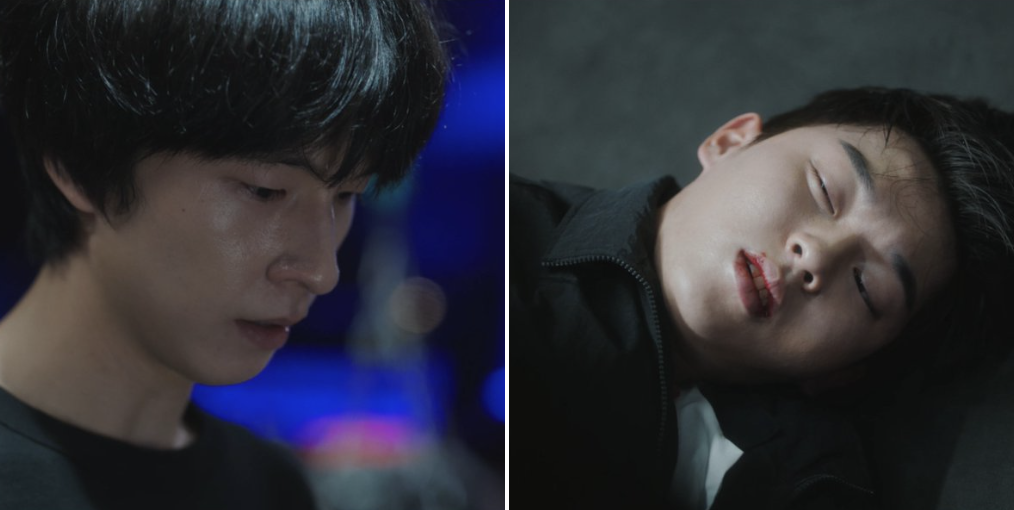
The Conversations That Keep Us Talking
What I love about discovering that hidden Director Yoo interview is that it perfectly illustrates how much there is to unpack in stories like this.
Three years after the show aired, we’re still finding new pieces of information that completely reshape our understanding.
Join the Ongoing Discussion
I’ve been archiving all the inspiring analysis comments on my Twitter account @jennieleepod whenever I get time – these conversations about translation, cultural context, and character analysis deserve to be preserved and shared with more WHC fans!
If you want to browse more easily and join our ongoing discussions about how language shapes storytelling, come hang out there.
Beyond Subtitles
Want to catch the cultural and linguistic subtext that’s impossible to capture in subtitles?
I’ve started posting weekly about the Korean language details that completely change how you understand K-dramas.
Chapter: The “Ah” Accessory Mystery
Ever wonder why it’s “Si-eun-ah,” “Beom-seok-ah,” “Hyun-tak-ah,” and “Hu-min-ah” but “Su-ho-ya“?
The “ah” that comes after names can be thought of as an accessory – it’s one of the crazy Korean grammar rules lol. But here’s the thing: “Su-ho-ya” gets “ya” because the last syllable “ho(호)” doesn’t have a “hook” to attach the “ah” accessory to.
In contrast, the last syllables of Si-eun(은), Beom-seok(석), Hyun-tak(탁), and Hu-min(민) all have these “hooks” to attach the “ah” accessory to: ㄴ ㄱ ㄱ ㄴ
But Su-ho (호) = NO HOOK!
This tiny detail completely changes how intimate and casual the characters sound when calling each other’s names – something that gets completely lost in English subtitles!
🔗 I’ll drop the link here, if that’s your thing, pls visit
Weekly insights into the untranslatable moments, wordplay that changes everything, and cultural references that make Korean dramas so much richer when you understand the original language.
Park Ji-hoon once said he hoped Season 3 would be…
A story about fighting adults.
I hope so too.
⛔️ Copyright Disclaimer: All drama footage, images, and references belong to their respective copyright holders, including streaming platforms and original creators. Materials are used minimally for educational criticism and analysis with no intention of copyright infringement.
🚫 Privacy Policy: This site follows standard web policies and does not directly collect personal information beyond basic analytics for content improvement. We use cookies to enhance user experience and may display advertisements.
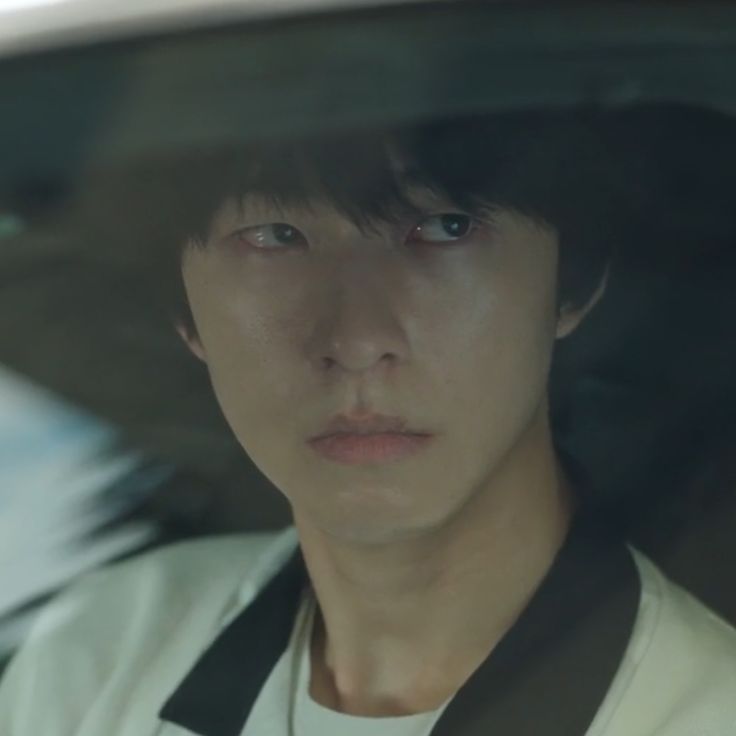
답글 남기기